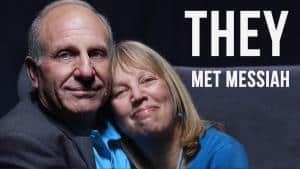Torah Portion for week 24: Leviticus 1 – 5
וַיִּקְרָא
Vayikra (And he called)
Why is forgiveness important for you? The book of Leviticus and especially the chapters in this week’s reading are among the least familiar and least read portions of all Scripture, perhaps because many people are put off by all the details about sacrifices, the priestly work, etc. Please don’t be put off! The book of Leviticus contains the revolutionary nature of the Mosaic covenant, where for the first time in human history, God established a system for sinful humans to find forgiveness and to have communion – a personal relationship – with the loving yet holy God.
Central to our weekly portion dealing with the various sacrifices of the Mosaic covenant is the topic of the forgiveness of sins. The expression “and they shall be forgiven” is found only about forty times in the entire Old Testament. Most frequently it is found in the book of Leviticus, and within it, mostly in this week’s Torah portion. Throughout the Bible, when God uses the term forgive in relation to human sinfulness, it carries the connotation of complete fulfillment of what is required of the guilty party and restoration of fellowship with God.
Interestingly, in the past several decades a great body of social and psychological research has been done on the topic of forgiveness, though not necessarily from a faith perspective. The general findings indicate that both receiving of forgiveness and giving of forgiveness promote better health, both physical and emotional. Research also indicates that it is very difficult to forgive another if you have not experienced forgiveness yourself! So, forgiveness is good for you, but you have to experience it personally before you can pass it on and forgive others.
That brings us back to our weekly portion containing details about all five of the main sacrifices of the Mosaic covenant, which enabled people to cover their sins and receive forgiveness. With this sacrificial system, and especially the sin offering, God has shown all of us His loving-kindness. Why? In the words of King Solomon, “Surely there is not a righteous man on earth who does good and never sins” (Eccl 7:20). We all fall short of God’s perfect standard and therefore need a sacrifice to atone for our sin.
But how can we receive forgiveness today, when the temple and altar have been destroyed for nearly two thousand years? This is a question – a new and unprecedented reality – that the Jewish people have been facing ever since the destruction of the temple in 70 C.E. Unlike the Babylonian exile that was clearly marked in time by God through Jeremiah (seventy years), the second exile contained no such short-term promise. And so, the solution devised by the Jewish leaders of the day was that prayer could be a substitute to sacrifice. In truth, this decision has no biblical support at all; it is merely a tradition. As a result, for the past two thousand years, the devout Jewish person prays daily, “May my prayer before you be as if I sacrificed a sin offering, as if I sacrificed a guilt offering, as if I sacrificed a burnt offering,” etc.
However, God in his Word gave very specific details about what will happen after sacrifices are not available on the altar. Over one thousand prophecies in the Hebrew Scriptures foretell of the Messiah, his nature, his actions, the timing of his coming, and the new reality he will bring to all who believe – forgiveness of sins.
In the words of the prophet Isaiah, “All we like sheep have gone astray, we have turned – every one – to his own way; and the LORD has laid on him the iniquity of us all” (Isa 53:6). The Messiah is the ultimate divine revelation, and the ultimate sacrifice through which all can come to know the Living God.
If you do not yet know Yeshua (Jesus) as your personal Messiah and Savior – he calls you to turn to him today. “. . . God gave us eternal life, and this life is in his Son. Whoever has the Son has life; whoever does not have the Son of God does not have life” (1 John 5:11-12).





















